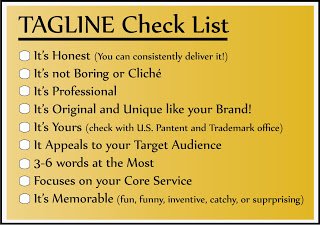Monday, 10 April 2023
POETRY
When you fall off the wagon of life
When you fall off the horse do you stay down in the mud or do you climb back on and continue the journey?Life is hard.
LANGUAGE & TRANSLATION: Chinese slang & idioms
popular slang words and idioms
你是魔鬼吗?you devil!
家里有矿 - family has money (rich)
安排上了 - planned / sorted
小拳拳捶你胸口 - punch 2 the chest / punch to the heart
Sunday, 9 April 2023
POETRY: still, calm, tranquil, peaceful
Moonbeams shining, gleaming, glowing;
Reflected on the surface flow.
Silence lingers though not eery,
Broken only by one sound;
The lowly calling for a lover
The Fireflies glow,
Lanterns bobbing, floating, swirling;
Drifting elegantly, airily, sylphlike
Living candles of the night skies.

POETRY: On the edge

Tuesday, 14 March 2023
translation: Work placements and internships
TRANSLATION - Work placements and internships
gaining some practical experience in translation is important to start a new career in translation or localisation volunteering, work placements and internships can help with this.
Although you might be starting your career now, it is more likely that you might already have years of work experience behind you. So, you might be wondering if work placements or internships are appropriate for you, or even feasible? You might have decided that they are not, but perhaps you should reconsider.
Whatever your background and your expectations of translation or localisation, it is useful to research it, as you might find some useful information about the translation industry and discover jobs that you might want to consider.
Work experience
So, why is work experience important? why is work experience useful and what do employers think about it? Do mature students have an advantage?
many recruiters say::
mature students have extra experience which puts you at an advantage to someone who has gone straight from school to university. Your commitment, ambition, and drive will be noted as long as you are prepared to talk about your choice/change of career path.
So, if you already have experience in a different field, it is important that you are able to articulate why it is you have decided to change careers.
Internships and work placements are a very interesting way to get to understand first-hand what jobs are involved in the translation industry, and how large language service providers (LSPs) operate.
Building your work experience can help you:
- Decide what career paths you want to explore and make contacts who can help you in your career.
- Enhance your CV and develop your transferable and employability skills.
- Get a realistic idea of the responsibilities, skills and challenges of different types of roles and gain insight into different sectors.
Different types of work experience
Internships
An internship is a fixed-time work experience placement which gives you a chance to enhance your employability and career prospects. Graduate internships may be full or part-time and can last between a few weeks and a few months. Some internships are paid, and some can be done remotely.
Secondments
Secondment is temporary paid work in a different area from where you usually work.
Placements
Work placements are a period of work experience that is part of your degree. They give you the chance to apply your skills in a work setting.
Insight programmes and open days
Insight days and programmes usually involve a range of activities such as work shadowing, networking and presentations with the option to meet subject matter experts and ask questions.

Other options
Another way to learn about opportunities, job sectors and a way to get your ‘foot in the door’ is to look for paid employment, such as:
- temporary roles
- junior positions
- portfolio working
- freelancing
- project work
If you are looking to change your career you could consider applying for ‘junior’ or ‘assistant’ positions to develop your sector knowledge ‘on the job’.
How to get work experience if you're already in work
If you’re working or have other commitments it can be difficult to take on a placements or secondment, especially if you’re looking to change careers or sectors. Consider other options such as volunteering, portfolio working or using annual leave for short-term projects.

Finding work experience
like job opportunities, work experience opportunities can be advertised or organised informally.
Make sure any work experience you arrange suits your career plans and what you can realistically achieve. Be clear about your career aims and how they fit with those of the employer.
Find 'hidden' work experience opportunities
Not all work experience opportunities are advertised or are even formal opportunities. For example, some small and medium size enterprises may rely on word of mouth or speculative approaches.
- Exploit existing opportunities at work – if you’re already working, you may find you can volunteer or do work experience in a different role with your current employer.
- Network – make it known to your contacts that you’re looking for work experience.
- Follow companies on social media to keep up to date with what they are doing.
Making the most of your work experience
When you’re looking for opportunities, consider what you want to get out of the experience and your own circumstances.
Good employers will provide quality experience that will develop and support students and graduates. You should be able to carry out ‘real’ work and projects to help you enhance your employability and academic skills.
What to do during the experience
- Make sure you have a mentor or supervisor to contact if you need to.
- Ask for feedback during or after completing your placement.
- Be proactive and seize opportunities to make contacts and network with colleagues.
What to do after the experience
- Ask for feedback after completing your placement.
- Thank the organisation and mentor for the opportunity.
- Reflect on your roles, activities and projects.
- Note down any outcomes and results.
- Update your CV with your work experience details.

translation: portfolios
Your portfolio as a translator is a document that contains a selection of your professionally translated texts and it is one of the best examples of what your potential clients should expect if they decide to hire you. Although most of the clients will ask for a small sample text translation, before hiring you, portfolio is great for determining if you are the right person for the job.
The online portfolio is great for showing off your skills and expertise in certain areas you are specialised in.
How should it look,? What should it contain?
Formatting
Each text sample in the portfolio should be short and interesting to read. Pieces with more than 500 words will bore potential clients and make them skip big parts of the document, and therefore not realise what are your best skills. In translator’s portfolio only professional looking fonts should be used, together with standard font size and color, without photos, clip art, emoticons etc.
Potential clients should be able to focus on your translating skills, not on fancy lettering. Source and target text should be next to each other preferably on the same page
*Make sure to check all the links inside the document, broken links in portfolio are highly unprofessional and unuseful.
Content
Portfolios shouldn’t contain a pile of randomly selected translations, it should be examples of very narrow and highly specialized texts that will promote your expertise in the best possible way. These translations should emphasize your specialisation in one field and they should be the translations that you are particularly proud of. You shouldn’t mix different specialties in one portfolio, instead you can make several ones, specialized for each of your areas of expertise.
If some of your clients allow you to place their ordered translations in your portfolio, you can also point out the source of original text (reference them). If the translations are done for some famous company or individual and you get their approval, referencing them will add more credibility and a sense of finesse and experience to your portfolio.
When using online texts as samples, you should also add the source where you found the original text.
Remember not to violate copyright laws and if the text you want to translate is protected by Creative Commons or any other license, do everything to give the proper attribution to the text author, including contacting an author and asking for permission if necessary.
Where to Share It?
Your CV/ cover letter should contain the link to your online portfolio. You should also send it to every potential client that contacts you and it should be wide available for download on your web site, if you have one. In addition to all this leave a link to your translator’s portfolio on all online translator market places, where you have a profile and all other freelance networks. Don’t forget to share your portfolio on social networks,because good social media strategy can bring you more clients. Linkedin network is the best for this kind of promotion, but Facebook, Google+ and even Twitter can also be very useful.
How to Draw Traffic to Your Portfolio?
Sharing your portfolio on social networks is just the first step in attracting more potential clients. Your portfolio should be regularly updated, and every update should be shared with your audience. Each post that follows your portfolio should have a short personal note and it should be thoroughly analyzed in terms of its reach and the engagement.
As we said in the previous paragraph, another great place to promote your portfolio is your company’s website. It should be SEO optimized, well-designed and it should also have fresh and high quality content. Placing your website in first pages of Google search will drastically increase the number of potential clients who are going to see your portfolio and hire you.
What Else Should Your Portfolio Contain?
Good portfolio could also contain all necessary personal information, and some more experienced translators with already developed translation companies could also place their company logo inside the document. Translator’s comments can also be very useful addition that will present your working methods to possible clients. These comments should come after every short translation and should contain few lines about each translation and some special methods you used while completing the task etc.
Good portfolio is the basic tool for presenting your skills and each translator should have at least one document like this.
Your Unique Value Proposition
You might find that a term such as UVP sounds a bit out of place in a module on translation in practice, but let me tell you it isn’t! Your Unique Value Proposition is just a business way of talking about a concise, clear statement that explains what you offer, why your clients should hire you, and how you are different from the competition.
https://atasavvynewcomer.org/2017/09/05/branding-create-professional-portfolio/
- What exactly do you offer as a translator? This could be your language combination, a specific area of specialisation, or any additional services such as copywriting or proofreading.
- What skills, knowledge or professional background make you special as a translator? If – as well as a translator – you have a background in a particular industry, you should include this information here.
- Why should clients do business with you and not someone else? Think about your main strengths.
Your bio
In a previous section of the Gaining Experience strand, you worked on preparing your CV. Now, considering your overall experience and the paragraph you’ve drafted about your Unique Value Proposition, let’s have a look at how you could write a short paragraph about yourself. Having a bio is very useful, as you can use it to briefly introduce yourself when approaching a new client, or on any social media professional profile you want to create. If you write an article in a professional association’s publication, they will also require a bio. It is not a static text, as you can adapt it to each specific circumstance, and it will change with time, but it is useful to have a ‘master’ version that you can tweak as necessary. This short bio should only be about 300 words, so it is important that it only includes your most relevant experience and skills.
Your tagline
You might have noticed that some translators also have a ‘tagline’ – a short sentence to summarise their expertise. These could be things like:
- ‘Professional translation services by an industry expert’
- ‘Translations you can trust’
- ‘Specialised in IT, business and financial documents’.






